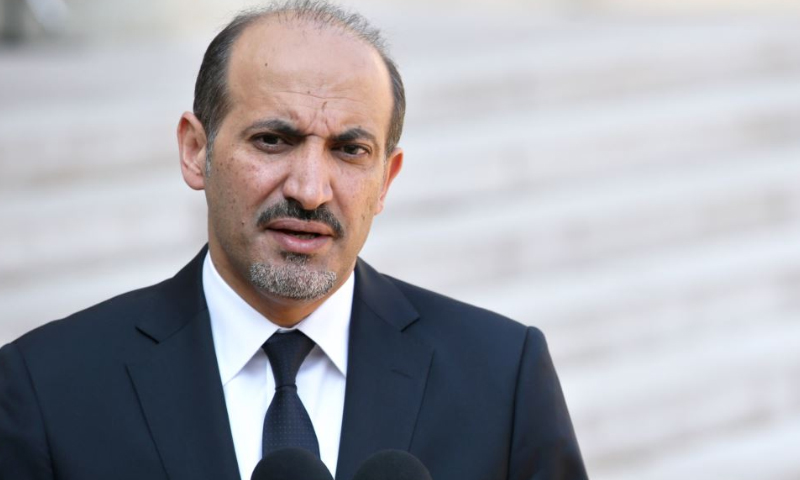After leaked reports emerged of a Syrian opposition delegation visiting Damascus to negotiate with the Syrian regime under Russian sponsorship, opposition figures have hastened to deny the reports.
Ahmad al-Jarba, the most prominent figure involved in the alleged visit, is one of the few people who did not deny or issue any statement regarding the visit, raising suspicions that the meeting really did take place.
Ahmad al-Assi al-Jarba, born in al-Qamishli city in 1969, is one of the sheikhs of the al-Shamar tribe in the Syrian al-Jazira region. Al-Jarba became head of the National Opposition Coalition for two consecutive terms, the first in July 2013 and the second in January 2014. He participated in the international “Geneva One” and “Geneva Two” talks, which brought no changes in the humanitarian situation in Syria.
After the end of his term as head of the coalition, al-Jarba established the Syria Tomorrow Movement in April 2015 in Egypt. He opened its foundational meeting with the song, “Protectors of the Homeland,” in the presence of several prominent Egyptian figures including the Minister of Foreign Affairs Samih Shukri and the Fateh Movement leader Mohammad Dahlan who is known to be close to the United Arab Emirates.
Al-Jarba was criticized by Syrian opposition figures for starting the Tomorrow Movement as critics pointed out that the move comes as part of Russian plans to create an alternative if it is forced to compromise on al-Assad remaining in power. Others have commented that the movement is al-Jarba’s attempt to benefit by cooperating with some countries with influence in Syrian affairs.
After establishing the Syria Tomorrow Movement, al-Jarba signed an agreement with the Kurdish “Autonomous Administration” in Cairo to organize joint strategies and military operations.
Al-Jarba formed what is called “Syria’s elite”, a new group he placed under the authority of his movement, and announced control of a number of villages and areas in the rural outskirts of al-Hasakah and Deir Ez Zor.
Al-Jarba went against expectations in September when he said, “What is happening now in Syria is (a struggle for power)”, indicating that Syria is becoming “a center for all the terrorists in the world to settle their scores on Syrian territory.”
He described ongoing events in Syria as the “distortion of the revolution” and considered “that there is no solution in Syria except with a Syrian-Syrian dialogue under the auspices of the United Nations, America, Russia and the Arab League.”
A Syrian-Syrian dialogue is a condition the Syrian regime insists on in its official discourse. This was confirmed by the regime’s Minister of Foreign Affairs Walid al-Mouallem in Damascus when he declared on 21 November 2016 his readiness to engage in this dialogue.
The transformations and contradictions in al-Jarba’s discourse, from his counter-revolutionary statements to reports of his meeting with the negotiation delegation in Damascus, confirm suspicions that a meeting is being coordinated under Russian sponsorship.

